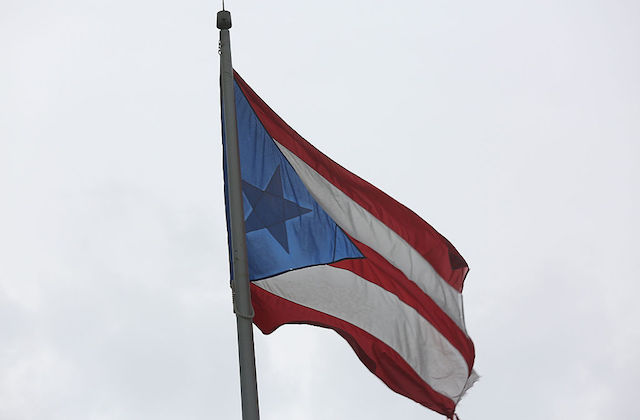Puerto Rico's Water System Is Almost Fully Operational

Though most of the post-Hurricane Maria recovery news out of Puerto Rico has been negative, there are now positive reports about the island’s water system.
According to government officials, the system that was damaged severely when the hurricane hit the island on September 20 is now nearly fully operational. As of June 6, they claim that more than 96 percent of customers now have restored water service.
According to the Federal Emergency Management Agency, Hurricane Maria knocked out water service for about half of the island's residents. Wastewater treatment plants were damaged, and so were many of Puerto Rico's 114 drinking water treatment plants. More than a third of sewage treatment plants were inoperational after the hurricane, said the Environmental Protection Agency in October. This led to raw sewage appearing in water used for residential needs like cooking and bathing.
Now, according to a report in Kaiser Health News, all wastewater treatment plants are operating. In addition, all but two of the island's drinking water treatment plants are working. However, some are being powered by generators, as Puerto Rico’s electrical grid is still under repair after being knocked out completely in the storm.
Generator-powered water plants are not the only potential problem regarding the system. Per Kaiser:
Outside of cities, [water] service has been slower to be reconnect. Flow is often intermittent and the water quality is uncertain.
Throughout Puerto Rico, electrical outages and faulty generators mean pumps don’t consistently deliver water to residents’ homes and operations are disrupted at water treatment plants. Residents are cautioned to boil water for three minutes during the first three days after their water is restored or after an interruption to make sure it is safe to drink.
The Puerto Rico Aqueduct and Sewer Authority (PRASA) has not yet released information on the quality of drinking water. Two of the three laboratories that test water quality are still being repaired and cannot be used. Subcontractors now conduct these tests, says PRASA.
For many on the island, having working water flowing through the pipes in their home has not brought an end to their water problems. Per Kaiser Health News:
That is little comfort to rural residents like Rodríguez Santiago, who are left coping with limited access to clean water and fear the new hurricane season, which started this month. She said she broke out into a rash after she tried to shower with the faucet water. She does not wash dishes or bathe with it. She consumes only the water she hauls in from a government-run portable water station.
“Now I get desperate thinking that a hurricane will come,” she said.
On Tuesday (June 26), Puerto Rico's Public-Private Partnerships Authority announced its intention to begin partially privatizing PRASA. It claims the move will improve water quality and service for residents.
Food & Water Watch executive director Wenonah Hauter said in a statement that privatization would lead to “excessively high water bills for households and businesses already struggling to rebuild in the wake of the climate disaster." He also emphasized that PRASA should “focus on basic services and ensure that every Puerto Rican has access to safe public water."
